The Systems Behaviour Lab is part of the Department of Biology at Tokyo Metropolitan University. We are a multinational laboratory working on behaviour, ecology, and evolution of social organisms. Our group focuses on social behaviour, complex systems biology, socio-ecology, evolutionary ecology and biogeography, using social model systems. We use a combination of field and laboratory based empirical studies and computer models.

Dr Adam L Cronin
Associate Professor
I am interested in the evolution and ecology of social organisms, and how different social systems, and the flexibility inherent in social systems, permits organisms to respond to environmental variation and formulate adaptive responses to life-history trade-offs. To this end I use field and laboratory based studies of hymenopteran model systems (bees, wasps and ants) to examine various questions regarding individual to colony level behavioural strategies in an eco-evolutionary context.
Department of Biological Sciences
Graduate School of Science
Tokyo Metropolitan University
1-1 Minami-Osawa, Hachioji-shi, Tokyo, 192-0397, Japan
adamcronin[x]gmail.com

Dr Isaac Planas-Sitjà
Assistant Professor
I combine observational and modelling approaches using different insect groups (eg: cockroaches, ants, bees) and fish (eg: sticklebacks) to study the behaviour of social and gregarious species, with focus on ultimately furthering our understanding of ecological and evolutionary challenges. During my PhD I investigated how inter-individual behavioural differences and social interactions affect the collective behaviour of group-living insects. More recently I expanded my research to the ecological scale by combining field work, genetics and modelling to better understand the life-history trade-offs that drive and maintain different phenotypes within populations and assess the impact of invasive species on local community ecology.
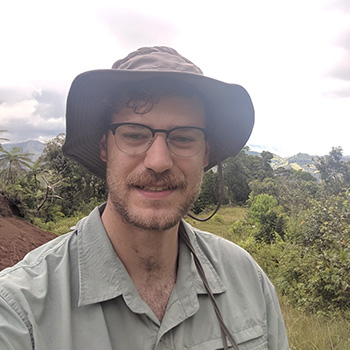
Dr Lucas Hearn
Post-doc
My primary research interests are in native bee evolution and utilizing non-model organisms to challenge our understanding of long-held evolutionary theories. I have an interest in using environmental and ecological data to explore social systems in bees. Specifically, I am passionate about theways in which parasites, predators, and climatic factors shape social behaviors in bees. For my PhD I used genomic and ecological data of a non-model Australian native bee species to investigate the evolutionary transition from solitary living to social living in insects. My current research aims to address the effects of climate change on native bees in Japan. I am particularly interested in exploring the role of life-history traits, such as nesting habitat and social behavior, in determining how native bees adapt and respond to the challenges posed by our changing global climate.
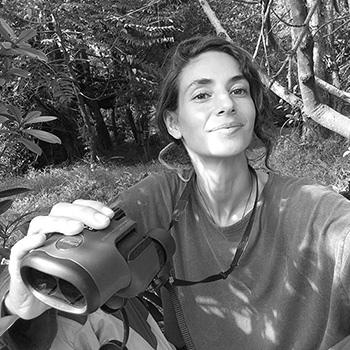
Dr Marta Quitián
Visiting fellow
I am interested in how environmental factors shape species interactions and hence ecosystem dynamics. I obtain comprehensive data on species interactions in the field. Using ecological network analysis and trait-based approaches (i.e. functional diversity indices and functional trait space projections), I detect disruptions on ecosystem functioning. In the past, I focused on seed dispersal and investigated the impact of habitat fragmentation on mutualistic interactions among frugivorous birds and fruiting plants across an elevational gradient in a tropical mountain forest of Ecuador. My current research focuses on pollination and employs ecological network analysis to assess the impact of habitat loss and invasive species on the pollination networks of the remote Ogasawara islands in Japan.
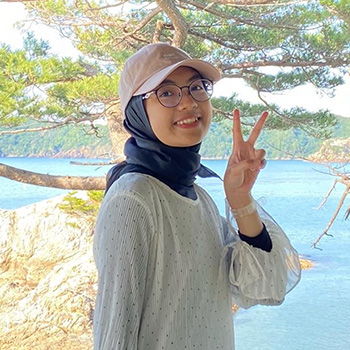
Nadhira Afiani Ramadhanty
PhD candidate
I am interested in understanding the mechanism behind collective decision-making in ant colonies. I am focusing on the Pristomyrmex punctatus ant, which is a common queenless ant in Japan. In my master’s, I investigated their individual responses to trail pheromones. Currently, I intend to explore how inter-individual behavioral variability in the ant colony influences collective performance.
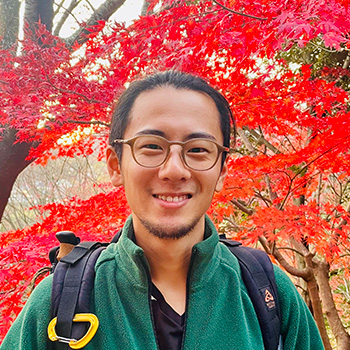
Kaito Takenaka
Research assistant
I’m interested in community ecology, especially among insects and plants. I obtained a master’s degree here by studying the native-invasive spp interactions in the pollination community (flowers and pollinators) of Ogasawara Island, Japan. Mainly, I evaluated pollen transport by honeybees (Apis mellifera) using microscopic identification of the pollen species. Currently I am helping fieldwork and other lab stuff, while exploring future PhD opportunities.
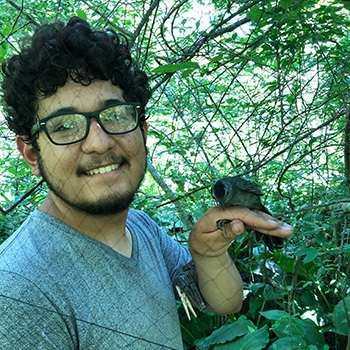
Manolo Benitez
Masters candidate
I am primarily interested in Hymenopteran ecology. My focus is on social immunity within the species Ceratina okinawana and observing differences between social and solitary nests.
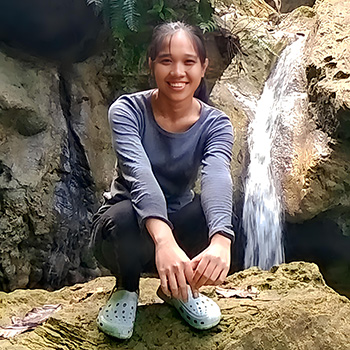
Ermae Liprado
Masters candidate
I am interested in studying behavioral ecology, how individuals respond to their environment.

Daisuke Suzuki
Masters candidate
Evolutionary ecology of Green Anoles.

Asahi Minata
B4 student – ecology of anoles
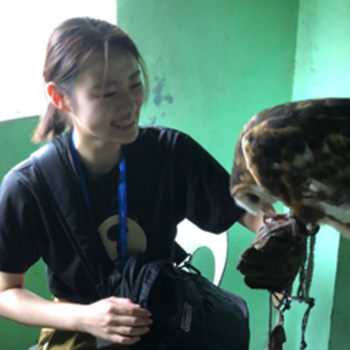
Fumiko Harakawa
B4 student – Physiological ecology of anoles
I’m interested in green anole body condition in Ogasawara island. In particular, I plan to survey the body condition in terms of land use, density of green anole and insects resources in Chichijima.
Jo Funatsu
Masters candidate
Akiya Sato
Masters candidate
Tsubasa Yoshimura
B4 student – Ecology of Technomyrmex brunneus
Ryoku Ito
B4 student
Lab Alumni
Ha Nguyen (PhD)
Diyona Putri (PhD)
Takuto Sakai (Masters)
Kaito Takenaka (Masters)
Maki Morooka (Masters)
Masako Yamada (Masters)
Yuki Matsuo (Masters)
Kazutaka Shoji (Masters)
Masako Yamada (Masters)
Masanori Yokozawa (B4)
Midori Yamamura (B4)
Yukiko Tamazawa (B4)
Chihiro Mishima (B4)
Akiya Sato (B4)
Daisuke Suzuki (B4)
Ryoma Nishimura (B4)
Jo Funatsu (B4)